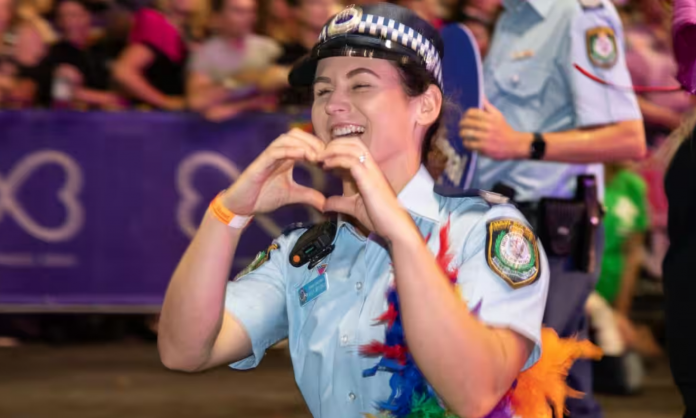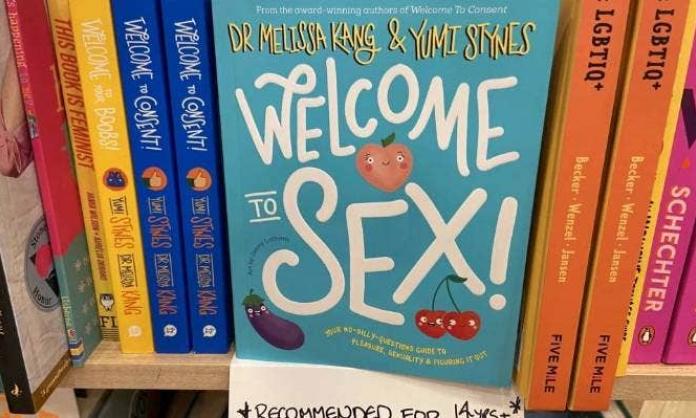Recent research published by Sydney’s Westmead Children’s Hospital is being weaponised by anti-trans activists to argue against the use of gender affirming medical care for trans youth.
The ABC’s Four Corners program reported in July that the Westmead gender clinic is severely understaffed and has only admitted three patients this year (compared to 88 in 2022), while the waitlist has blown out to 115 people. The ABC alleged that staff members had left due to the implications of the controversial study, which did not involve current frontline staff from the gender clinic, and that they felt they were no longer able to provide the care they knew their patients needed.
The study, which argues against recommending medical transition to transgender youth, followed the transition process of 79 patients. It asserts that young people primarily identify as trans due to family trauma and “rapid onset gender dysphoria” (ROGD). Proponents of ROGD claim that gender dysphoria is caused by social influences, such as social media, during adolescence and that this newly adopted gender identity will not last into adulthood.
This is a contested concept that, according to the Australian Psychological Society, empirical evidence refutes. For instance, a recent study in the Journal of Adolescent Health showed that nearly two-thirds of trans and gender diverse people realise their gender does not match the sex they were assigned at birth at or before the age of ten. The implications of ROGD are that trans youth should not have access to gender affirming care because they will “grow out” of their gender dysphoria. Many conservative lawmakers in the United States have referenced it when banning hormone therapy and puberty blockers for trans people.
The report bases its stance towards gender affirming medical care on its warning that “for young people who may regret their choice ... the risks for potential harm are significant”. It claims that 22 percent of participants detransitioned, meaning that they no longer identified as trans.
However, The Australian Professional Association for Trans Health (AusPATH) said in a response to the report that the figure includes patients who were not diagnosed with gender dysphoria and thus were never offered medical care. A few patients chose to stop taking puberty blockers, but there is no evidence that suggests they were no longer trans (some trans people pursue medical intervention, others do not). Only one patient in the study stopped all treatment and assumed their gender assigned at birth.
AusPATH claims that there is significant bias in the Westmead research, pointing out that the authors credit the National Association of Practising Psychiatrists, an organisation with known links to the anti-trans movement whose current president has presented anti-gender affirming talks to groups such as the conservative Australian Christian Lobby.
The report claims that doctors are pressured to “compromise their own ethical standards” by providing gender affirming medical care, and recommends a more “holistic” approach to treatment. Anti-trans activists and professionals regularly call for alternative forms of care, such as “watchful waiting”, which asserts that psychotherapy and the passage of time will resolve adolescent gender issues. These include Dr Jillian Spencer, a senior child psychiatrist recently suspended from the Queensland Children’s Hospital after speaking at an event held by anti-trans activist Posie Parker, and psychologist Dianna Kenny, an ambassador for the anti-LGBTI lobby group Binary Australia—both featured on the Four Corners program.
There is no evidence to back up the claim that “watchful waiting” is a legitimate alternative to affirmative care, and AusPATH likens these practices to conversion therapy under a different name.
According to the ABC, Westmead de-prioritises children who have advanced into puberty, unlike the gender clinics in Queensland, Melbourne and Perth. It has also been reluctant to prescribe hormone treatment for those under the age of eighteen, meaning parents are forced to find expensive private treatment for their children’s transition.
One former Westmead staff member told Four Corners that she quit after the death of fourteen-year-old trans boy Noah O’Brien. Noah, who had already begun puberty, was pushed to the bottom of the clinic’s list. His mum insisted that he developed a severe eating disorder due to the stress of not being able to begin gender affirming medical care. While in hospital, a social worker recommended he see a gender specialist, but this request was denied. He took his own life in January.
Westmead’s report has been released in the context of a global assault on trans rights. A key plank of the anti-trans assault is the claim that gender affirming medical care for young people amounts to child abuse. More than twenty US states have banned this care, while Sweden, Norway and the UK have wound back the use of puberty blockers.
There was a backlash against the Four Corners program from the right-wing media and known transphobes, including Dr Spencer. However, the NSW government issued a statement the day after it was aired expressing its dissatisfaction with the level of care being provided for trans youth at Westmead. NSW Health Minister Ryan Park has commissioned a review into the way in which gender affirming care is administered across the state, and promised to expedite the completion of a new gender hub for under 25-year-olds in south-east Sydney that has stalled for the last two years.
This is a reminder that anti-trans politics is still on the fringe in Australia. But this should not be taken for granted. The backlash in the US had a rapid onset, and the Westmead research shows that transphobes exist not just in the organised far-right, but in the medical profession as well.









